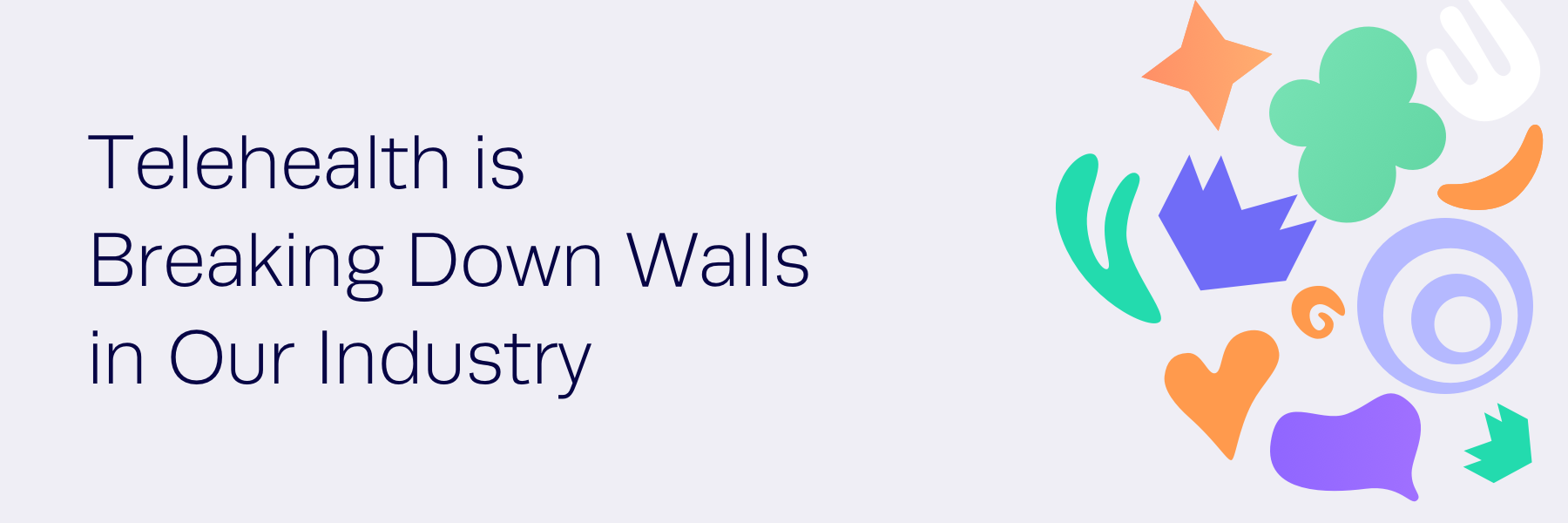Telehealth is Breaking Down Walls in Our Industry

An interesting study has just been released which examined the performance of telehealth technology for behavioral health, SUD, and addiction treatment in general. Indeed, virtual health is changing the relationship between caregiver and patient. Three solid conclusions:
- The use of virtual behavioral health could expand care for more than 53 million Americans facing these conditions.
- Demand for behavioral health specialists significantly outweighs current availability; in addition to severe wait times of 25 days for first clinical appointments, we are projected to have a shortage of 250,000 behavioral health and mental health professionals by 2025.
- Just a 1% increase in treatment for these disorders could yield as much as $2.4 billion in medical cost savings annually.
There is a need for a public health response to increase the availability of treatment for SUDs, including training for healthcare professionals in online interventions and counseling. The concept of tele-expertise has also emerged as a new strategy that could be valuable in mitigating the impact of the pandemic on the SUD treatment system. In the tele-expertise framework, an addiction specialist could distantly supervise the work of other health professionals in the field.
From Tipping Point to Transformation
“The behavioral health crisis in the U.S. isn’t new, but the pandemic is clearly exacerbating it,” notes Rich Birhanzel, a senior managing director at Accenture who leads the company’s health practice globally. “The rapid expansion of virtual care models during lockdown in the current pandemic created new expectations for effective and reliable healthcare at a distance. While our research found that only 38% of respondents hadn’t been widely using a virtual channel for such treatment in the prior three years, they’re now overwhelmingly willing to do so.”
Until recently, telehealth was an outlier technology; in a sense, it was a solution waiting for a problem. That problem came ashore earlier this year.
The shift to virtual care was abrupt. It was like traveling on a highway at 100 miles per hour and taking an exit without slowing down. Considering the low adoption rate of telehealth pre-pandemic, its overall use has been an encouraging success and has helped thousands so far. Hopefully, it will continue to expand and develop, with clear payment schedules from insurance payors. Looking forward, experts anticipate the need for a quarter-million new virtual care jobs for behavioral health and mental health professionals in the next five years.
In the months since the initial U.S. lockdown, recovery has come to include a long list of additional challenges for many individuals suffering from addiction, especially the lack of one-to-one sessions and group therapy work. Video telehealth has become a lifeline for many (adopted more universally by younger patients) and promises to continue to grow.
Dangers of the Pandemic
A recent analysis predicted as many as 75,000 people might die from suicide, overdose or alcohol abuse, triggered by the uncertainty and unemployment caused by the pandemic.
While public health officials are trying to gather data on how many people test positive for the coronavirus and how many people die from the infection, the pandemic has left an untold number dying in the shadows. They are unaccounted for in the official tally, which, as of August 17, has topped 170,000 in the U.S.
Requiring novel treatment and preventative measures to adapt, individuals with substance and alcohol use disorders are not only an at-risk population for contracting the coronavirus but also are more susceptible to relapse or overdose because of the sudden social and economic changes caused by the pandemic, in addition to the traditional difficulties of treatment access and adherence.
Following global and national trends, overall substance and alcohol use, overdoses, and overdose deaths have sharply increased in Fayette County (NC) since the pandemic began. Addiction specialists attribute the trend upward to the isolation created by lockdowns implemented because of the pandemic, fear, unemployment, social distancing requirements, and other factors.
Drug Overdoses in FL
Alachua County (FL) as a whole has witnessed an increase in opioid-related drug overdoses in the past few weeks, said Alachua County Sheriff’s Office spokesperson Art Forgey. Since 2013, a nationwide opioid epidemic has resulted in significant increases in overdose deaths involving synthetic opioids like fentanyl. Gainesville police have also noticed an increase in Fentanyl-laced drug overdoses in Alachua County, according to GPD Spokesperson Graham Glover.
In about a five-day period in mid-June, ACSO responded to six overdose incidents, Forgey said. Five of the users survived after being injected with Narcan, a nasal spray used to reverse the life-threatening symptoms of a drug overdose.
Contact Kipu at 561.349.5901 to learn more about our addiction treatment software and how it can help you provide care to more individuals.
Recent Posts
Rely on Kipu to keep you ahead of change.
Subscribe to Kipu for behavioral health news, updates, community celebration, and product announcements.



